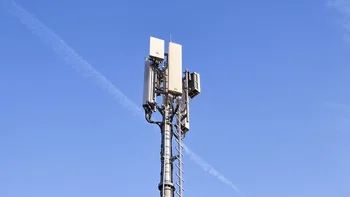Scooch over AT&T, T-Mobile, and Verizon, appetite for private 5G networks is growing

5G infrastructure | Image Credit - Bloomberg
While most individuals and businesses rely on public wireless networks, like those operated by AT&T, T-Mobile, and Verizon, a small but increasing number prefer private wireless networks.
A private wireless network is a standalone network that provides limited access to authorized users. They can be assembled and run by small-scale private teams or outsourced to a mobile network operator like Verizon or T-Mobile.
Private 5G networks are also perfect for rural areas where carriers don't provide service.
As recently as a year ago, reports said that this was a failed market, but that could not be further from the truth. According to findings from market research company Dell’Oro shared by RCR Wireless News, sales of private 4G/5G radio access network (RAN) equipment grew more than 40 percent in 2025, making up 3 to 5 percent of total sales.
Private wireless is currently one of the more exciting RAN segments, partly because of the more favorable growth trajectory compared to the broader RAN market. While it is still early in the private 5G journey, and it will take some time before enterprise spending will move the larger RAN needle, initial readings suggest private wireless moved above the noise in 2024, representing around three to five percent of total RAN.
—Stefan Pongratz, vice president at Dell’Oro Group, April 2025
Public RAN is predicted to decline by 1 percent during the same period.
2024 was a turning point for the market according to Dell’Oro. Sure, the market share is not huge right now, but the growth has been above expectations. Private wireless also grew at a faster rate than the broader RAN market last year.
Huawei is the top supplier for wide-area deployments, while Nokia is the leader when it comes to small-scale or campus-area private networks.
Private networks are both a threat and an opportunity for wireless operators. New players can emerge and reduce the demand for their offerings. On the other hand, since these companies are trusted names, they can offer innovative solutions. For instance, T-Mobileintroduced a portable 5G private network solution just last year to allow for 5G private network deployment just about anywhere.













Things that are NOT allowed: